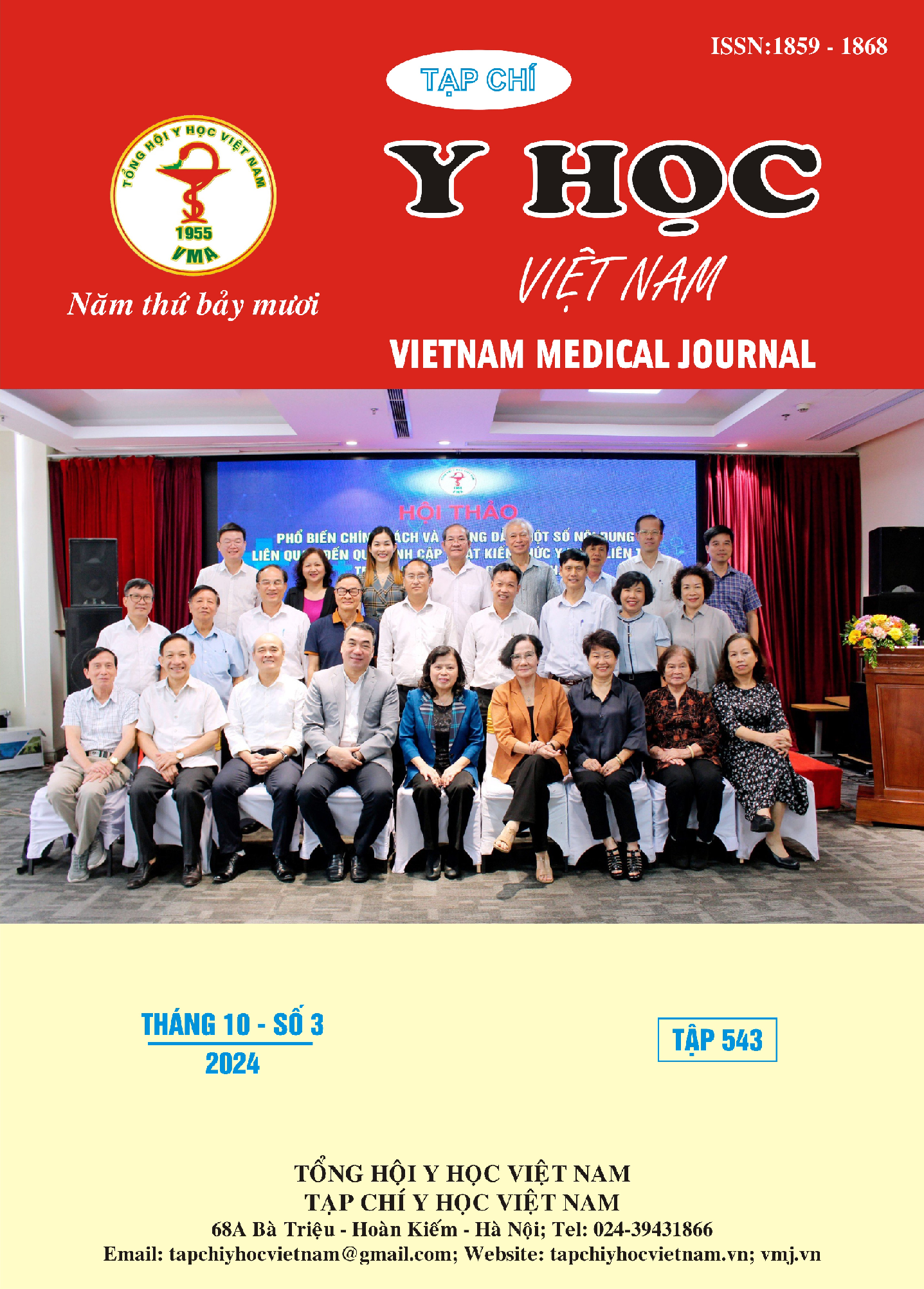EFFECTIVE INTERVENTION USING SMDIA SOFTWARE IN CONTROLLING BLOOD GLUCOSE IN PATIENTS WITH TYPE 2 DIABETES AT THAI NGUYEN NATIONAL HOSPITAL
Main Article Content
Abstract
Background: A potential intervention involving a smartphone application can assist individuals with type 2 diabetes mellitus in effectively managing their condition through self-care. The SMDia software supports care providers in promoting self-care for patients with type 2 diabetes. Purposes of the research: Evaluating the effectiveness of self-care intervention using SMDia software in controlling blood glucose levels in people with type 2 diabetes in Thai Nguyen National Hospital. Methods: A 6-month controlled intervention study was conducted from March 2021. Thise study included 120 participants with type 2 diabetes in the intervention and control groups, self-care intervention using SMDia software in controlling blood glucose levels in people with type 2 diabetes. This assessment will be conducted using fasting blood glucose indices and HbA1c levels, comparing the values before and after the intervention. Results: After 24 weeks of intervention, the rate of blood glucose control achieving the target increased by 15.8%, HbA1c reaching the target increased by 31.7%. Moderate effect coefficient on blood glucose index and HbA1c (Cohen d = 0.62; 95% CI = 0.25 - 0.9); (Cohen d = 0.71; 95% CI = 0.33 - 1.07). Intervention effectiveness reached 8.2% for blood glucose control and 41.8% for HbA1c control. Conclusion: Self-care intervention using SMDia significantly improved blood glucose control in patients with type 2 diabetes.
Article Details
Keywords
Type 2 diabetes mellitus, self-care, SMDia software, blood glucose control.
References
2. Nguyễn Thị Kiều Mi, Lê Hồ Thị Quỳnh Anh, Nguyễn Minh Tâm (2017), "Khảo sát hành vi tự chăm sóc của bệnh nhân đái tháo đường type 2 tại một số xã, phường tỉnh Thừa Thiên Huế", Tạp chí Y Dược học - Trường Đại học Y Dược Huế 7(3).
3. Ahmad F, Joshi SH. Self-Care Practices and Their Role in the Control of Diabetes: A Narrative Review. Cureus. 2023;15(7):e41409.
4. Cafazzo JA. A Digital-First Model of Diabetes Care. Diabetes technology & therapeutics. 2019;21(S2):252-8.
5. Eberle C, Löhnert M, Stichling S. Effectiveness of Disease-Specific mHealth Apps in Patients With Diabetes Mellitus: Scoping Review. JMIR mHealth and uHealth. 2021;9(2):e23477.
6. Hansel B, Giral P, Gambotti L, Lafourcade A, Peres G, Filipecki C, et al. A Fully Automated Web-Based Program Improves Lifestyle Habits and HbA1c in Patients With Type 2 Diabetes and Abdominal Obesity: Randomized Trial of Patient E-Coaching Nutritional Support (The Anode Study). Journal of medical Internet research. 2017;19(11):e360.
7. IDF, editor. IDF Diabetes Atlas. Globodiab Research Consortium: International Diabetes Federation; 2021.
8. Sugandh F, Chandio M, Raveena F, Kumar L, Karishma F, Khuwaja S, et al. Advances in the Management of Diabetes Mellitus: A Focus on Personalized Medicine. Cureus. 2023;15(8): e43697.


